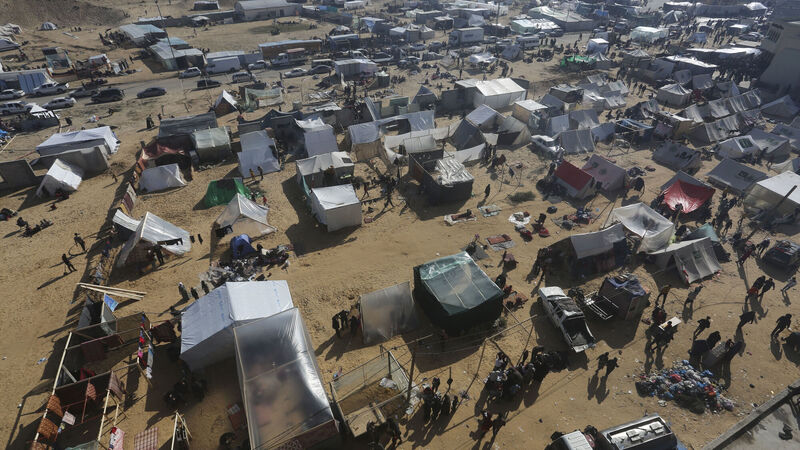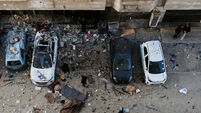Niall Holohan: A negotiated peace settlement is the only way for Gaza

Palestinians displaced by the Israeli bombardment of the Gaza Strip set up a tent camp in Rafah earlier this month. Picture: AP Photo/Hatem Ali
The destruction in the Gaza Strip has now reached such an intolerable level that it brings to mind the perspective in which warfare has taken place over the centuries.
During the classical and medieval eras, it was not uncommon for whole cities and regions to be laid waste, with entire populations slaughtered or sold into slavery.
















